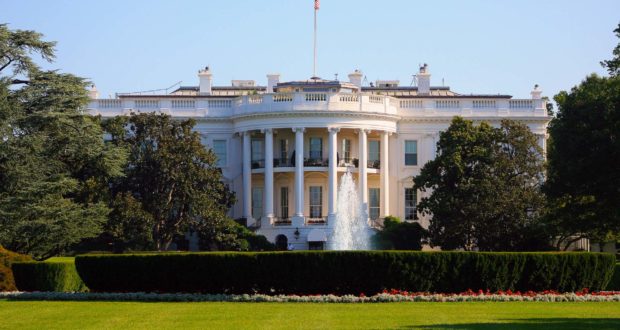Every four years, American home schoolers are handed an ideal civics lesson: the presidential campaign and election. With TV coverage, the Internet, historic sites, and even public libraries, every family has an opportunity to learn more about the world’s most influential position and the political process. Make sure you and your children take advantage of these resources before November 6.
Explain the Basics
Now is an ideal time to make certain that your students who are in the fourth grade or older understand the three branches of the United States government: legislative, executive, and judicial. Minimally, they should know that the Congress is comprised of elected representatives who make laws for the people. It is the job of the president and other members of the executive branch to carry out, or “execute,” those laws. The president is also the Commander-in-Chief of our armed forces. The presidency is an important and powerful position.
Capture their imaginations with History
Your local public library has grade-appropriate biographies and videos of some of our nation’s presidents. Even the youngest children will recognize George Washington as the “Father of our Country.” If you live near Virginia, you can visit his home at Mount Vernon, but there are historic sites all over the East Coast where children can learn more about Washington’s roles as gentleman farmer, Commander-in-Chief of the colonial forces during the American Revolution, President of the Constitutional Convention, and President of the United States.
Bring it Closer to Home
Sometimes children are able to better comprehend the political process when it concerns local issues and candidates. In addition to the candidates for president, talk to your children about local elections that may concern people they know. For example, you may say that you are supporting John Smith for the library board in your town because he wants to cut wasteful spending. Explain that a voter can support the library as good for the community, but have legitimate objections about the way it uses taxpayer money. Your high schoolers might check how many pro-life books or pro-homeschooling books they have in their collection.
Setting Priorities
As with everything else, Catholics must consider Holy Scripture, Catholic traditions, and the teachings of the Church when they support or vote for a candidate for public office. I had a friend who would ask a candidate for any office what his position was regarding legal abortion. My friend did not wish to help the career of a politician who was not on the right side of life issues. Moreover, a member of the school board or the library board does exert influence on book selections or programs. We Catholics, who pay taxes for the schools and libraries, want the books in the local public library and the curriculum in the local public school to reflect basic Judeo-Christian values.
Students in junior high school and older students can comprehend how Church teaching affects public policy. This can sometimes seem complicated, as one political party may appear to support some Church teaching, but not others. The American Catholic bishops have provided guidance in this respect which can be found here. Older students can read this document and you can explain it to younger children in an age-appropriate way.
Practice Good Citizenship
Explain to your children why you favor a presidential candidate, and what your family is doing to support him. Younger children will enjoy the buttons, bumper stickers, and signs for your yard that are available from local campaign offices. You might assign a high school student to write a letter advocating your candidate to the editor of your local newspaper. Encourage everyone to watch political speeches and debates on television, and then discuss them at the dinner table.
The most important way parents educate their own children is by word and example. Donate some time, even one hour a week, for local political activity. Your high schoolers might be interested in helping at the local political headquarters, in helping with door-to-door visits, or with the local phone bank. Take your children with you to the polling place to vote. Help out an hour or two at the polling place on election day; take your children with you. Let your kids be witnesses firsthand of the importance you place on voting for pro-life candidates. Let them see you sign in, go into the booth, and exercise this precious right that so many citizens of other nations have been denied since the beginning of time. Explain the meaning of “exceptionalism.”
Remember the Ultimate Goals
The Catholic homeschooling parents I speak to are very convinced about the ultimate goal of home education: forming our children’s hearts and minds for God so they will be saints forever in Heaven. Clearly, nothing is more important. But how we Catholics sanctify ourselves is through our everyday, ordinary lives. We become holy by being the best children, spouses, parents, employees, business owners, or religious that we possibly can be. How we live our lives here as citizens of the United States matters when viewed though the lens of our eternal salvation.
Sadly, very few young people are being prepared to assume their roles as citizens of selfless interest, noble character, and impeccable integrity. Many public schools and American university staffs are committed to values directly opposed to Judeo-Christian ethics, Catholic values, and the vision of the Founding Fathers. Graduates of these institutions dominate much of the media, academia, the law, and politics, so we should not be surprised about our present state of affairs. Those of us who have chosen home education have a unique opportunity—and responsibility—to prepare our children to assume leadership positions in all areas of American life, and to form and inform our beloved country by the teachings of Jesus Christ.
Header Image CC Trevor McGoldrick

 Seton Magazine Catholic Homeschool Articles, Advice & Resources
Seton Magazine Catholic Homeschool Articles, Advice & Resources
